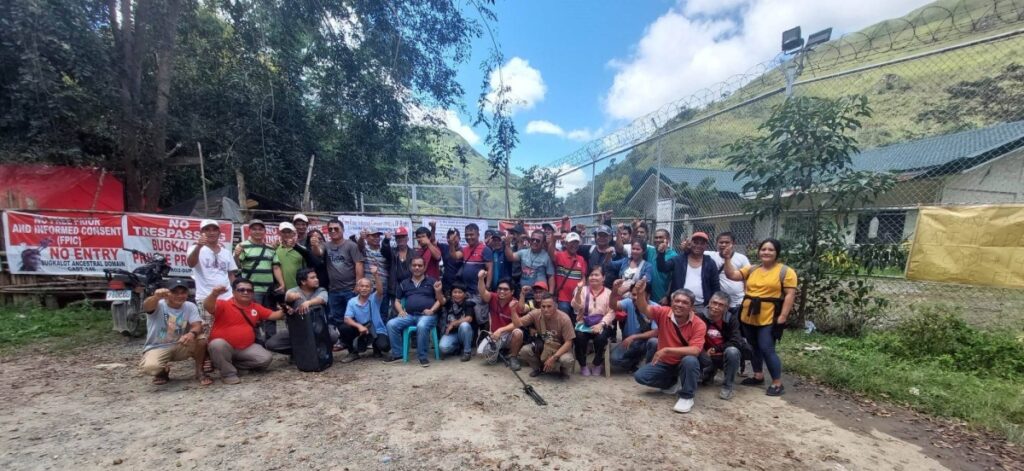
BY LEANDER C. DOMINGO
BAYOMBONG, Nueva Vizcaya (March 27, 2023)—The Bugkalot Confederation expressed victory with the Court of Appeals (CA) decision favoring the tribe of their rights over their ancestral domain areas covered by the Casecnan Multipurpose Irrigation and Power Project (CMIPP).
In its Feb. 21, 2023 decision, the CA favored the conduct of a free prior and informed consent (FPIC) within the AD areas of the Bugkalot tribe covered by the CMIPP operations.
Gov. Carlos Padilla also hailed the CA decision hoping that “there will be no more impediments along the way so that the FPIC, which has been more than two decades long, waits for the Bugkalot tribe.
“We are looking forward to seeing this new development for the Bugkalot tribe realize their dreams, which had been hampered due to non-observance of FPIC provided under the Indigenous People’s Rights Act of 1997 or the IPRA law,” the governor said.
Approved on Oct. 29, 1997, Padilla was one of the authors of the IPRA law, officially designated as Republic At 8371, which is Philippine law that recognizes and promotes the rights of indigenous cultural communities and Indigenous Peoples in the Philippines.
The CA decision denied the petition for certiorari filed by the National Irrigation Administration (NIA) and the Power Sector Assets and Liabilities Management (Psalm) seeking the nullification of the letter-reply dated Dec. 17, 2021 of the National Commission on Indigenous Peoples (NCIP).
The NCIP letter-reply backed by the officials of the Bugkalot Confederation headed by overall chieftain Rosario Camma required the NIA and Psalm to secure FPIC and certification precondition under the IPRA law with the operation of the CMIPP.
With this CA decision, Padilla noted that a new private contractor of the CMIPP or any company interested to operate the CMIPP is required to follow the FPIC.
“The conduct of FPIC for the operator to deal with the Bugkalot tribe will open up opportunities for the long-time disheartened tribe to claim their percentage share from the income of the CMIPP, among others, with the utilization of the natural resources within the tribe’s ancestral domain,” the governor said.
He said he has already advised the NCIP to make all the preparations and lay down the groundwork for the impending conduct of the FPIC within the ancestral domain of the Bugkalot tribe where the CMIPP is located.
There have been small groups under the Bugkalot Federation trying to go on their own, which prompted Padilla to urge members of the tribe to be in one accord in this endeavor, especially since new developments are coming their way in their favor as a tribe.
“I hope our fellow Novo Vizcayanos, particularly the Bugkalot tribe, will be united in this endeavor with the assistance of concerned government agencies,” he said.
A small number of Bugkalot tribe members have different stances on the setting up of a roadblock and barricades which prevented CMIPP workers from entering the project’s structures.
Two 26-kilometer run-off weirs and intake structures of CMIPP constructed along the Casecnan and Taan Rivers are located in Pelaway in Alfonso Castañeda town in Nueva Vizcaya.
The CMIPP’s 20-year build-operate-transfer or BOT scheme between the CE Casecnan Water and Energy Co. Inc. and the NIA which kicked off in 2001 officially ceased on Dec. 11, 2021.
Immediately, the Psalm and NIA took over to operate CMIPP through a designated third-party operator that won the public bidding for the CMIPP’s operation and maintenance. The Psalm gave assurance that the 165-megawatt CMIPP would continue operations in preparation for its privatization.
The barricade was a protest against the entry of a new owner of the $675-million CMIPP for lack of FPIC from the traditional tribal or village leadership.
In a move to settle the FPIC demand of the Bugkalot Federation, the NCIP last year attempted to settle with representatives of the NIA, Psalm, and CMIPP contractor Soosan ENS, but to no avail.
